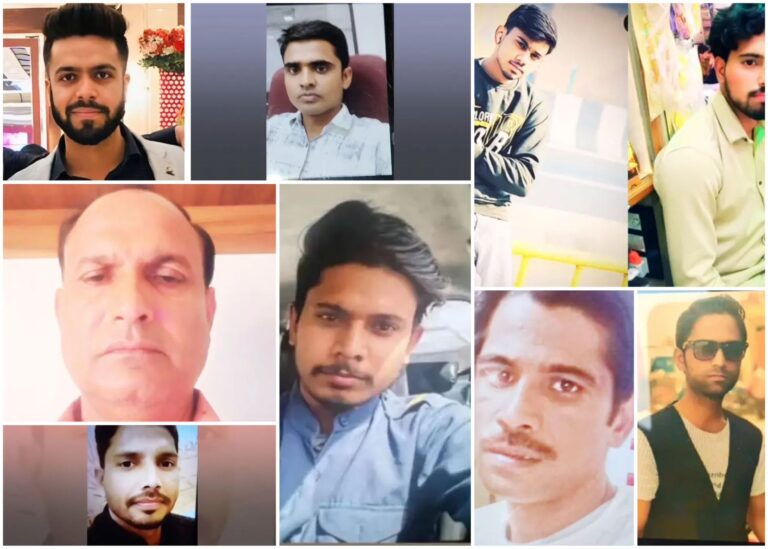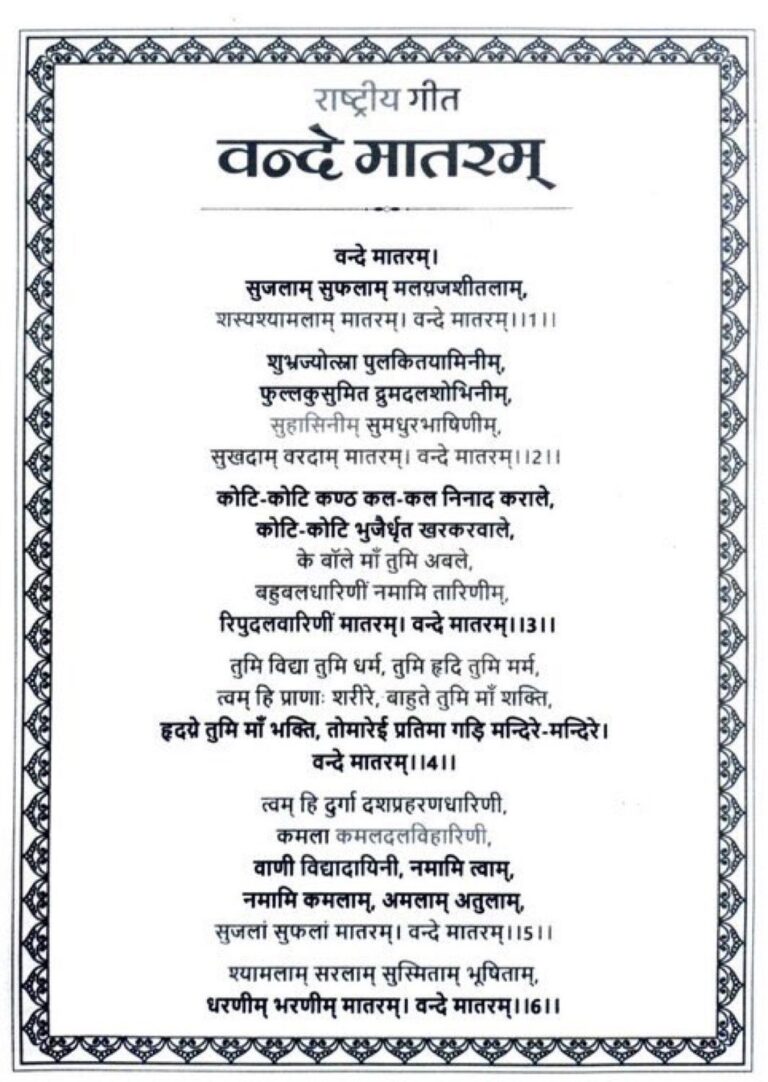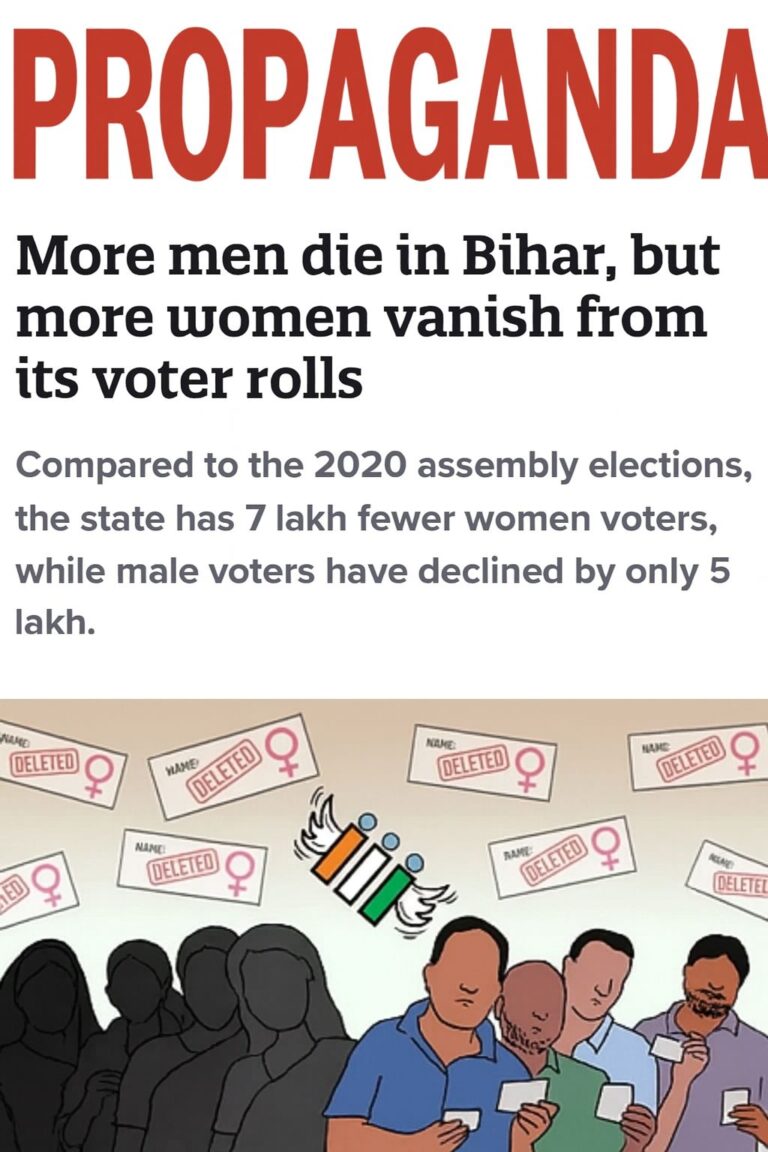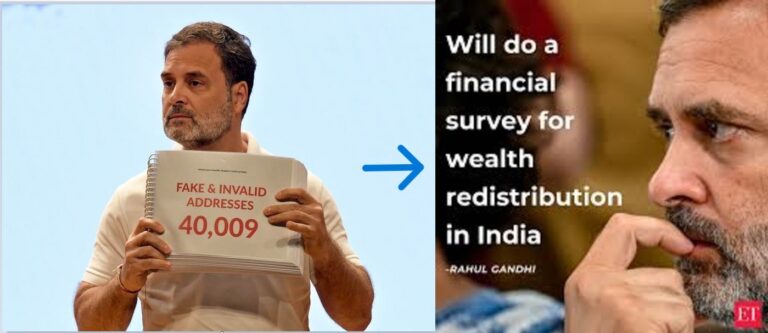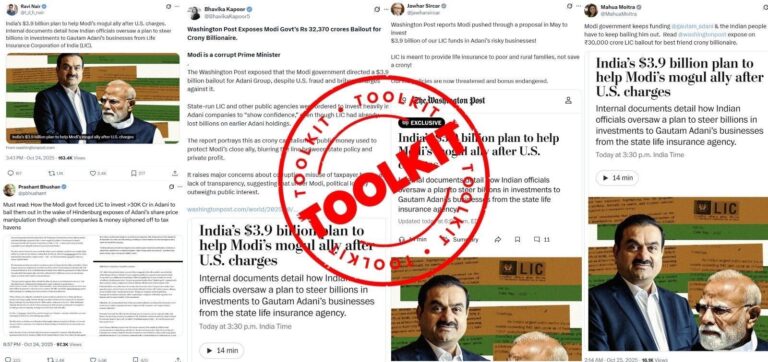The Indian Express, Darbari Journalists and Former CEC S.Y.Qureshi: Manufacturing Narratives to Shield the Truth of USAID $21 Million for Voter Turnout to India.

The recent revelation about USAID’s funding of $21 million for voter turnout efforts in India during President Trump’s tenure has sparked a significant controversy. While the matter warrants a thorough investigation, a section of the media—particularly The Indian Express—has gone into overdrive to discredit the claims even before a formal probe has begun. Their so-called “fact-check” conveniently shifts the focus, insisting that the funds were meant for Bangladesh, even though Bangladesh had a separate allocation of $29 million. This blatant attempt to control the narrative raises serious questions about the role of certain media outlets and journalists in preemptively shielding the political establishment.
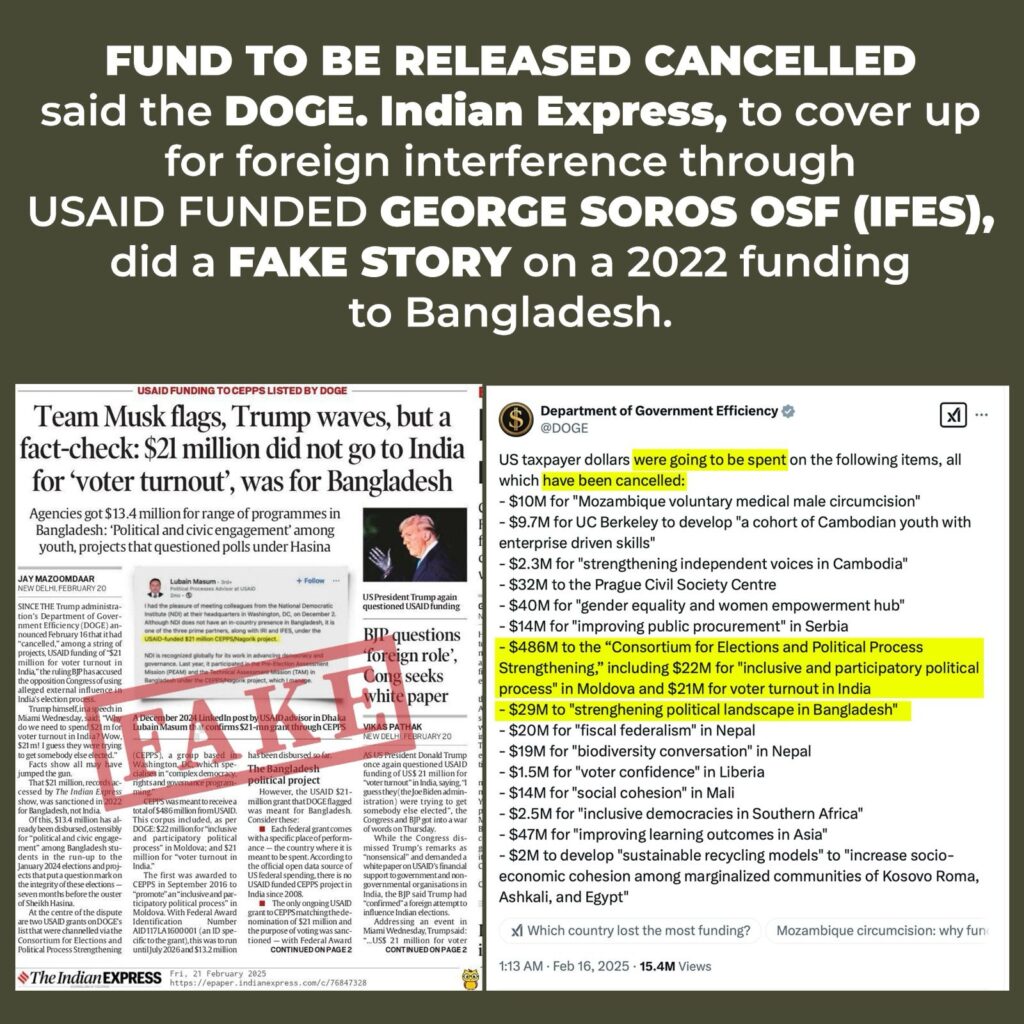
S Y Qureshi: The Convenient Spokesperson for the Anti-Reform Brigade went on to the extent of criticizing Electoral Reforms and Giving False Statements to Overseas Media like Kathmandu Post.
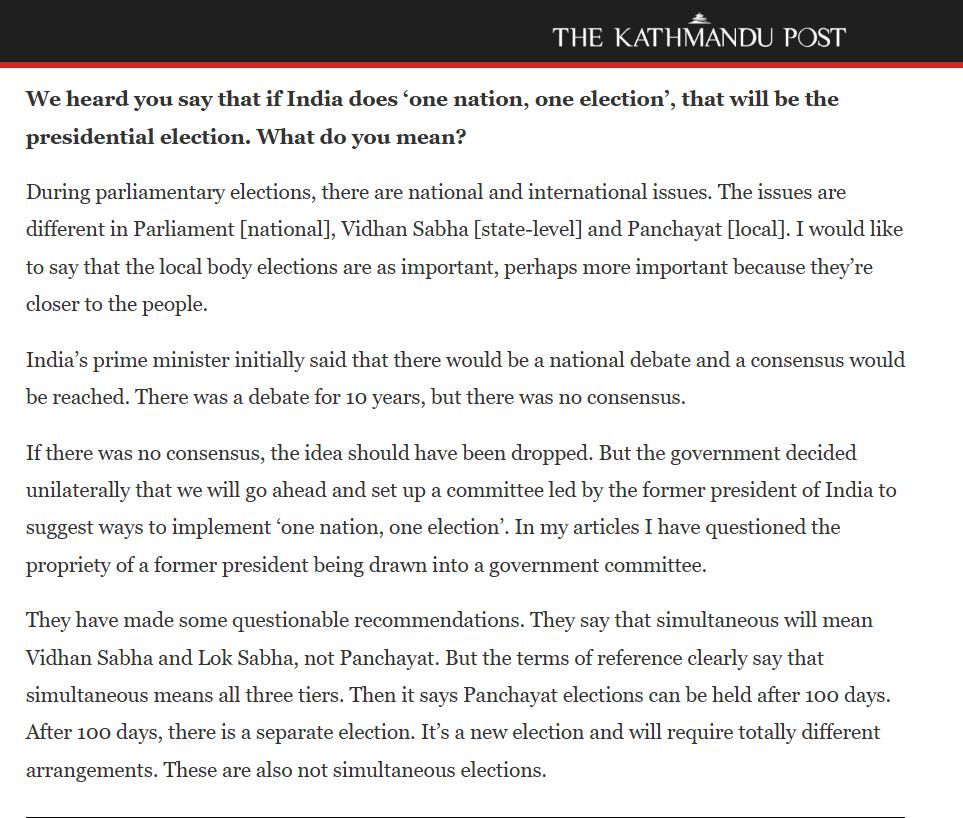
Here, Qureshi says that the Terms of Reference mentioned in the HLC report by Committee on One Nation One Election headed by Former President Ram Nath Kovind “Clearly Say that Simultaneous Elections means all three tiers.”
Whereas the Report says nothing like that and clearly mentions a gap of 100 days between LS/Assembly and Panchayat Elections.
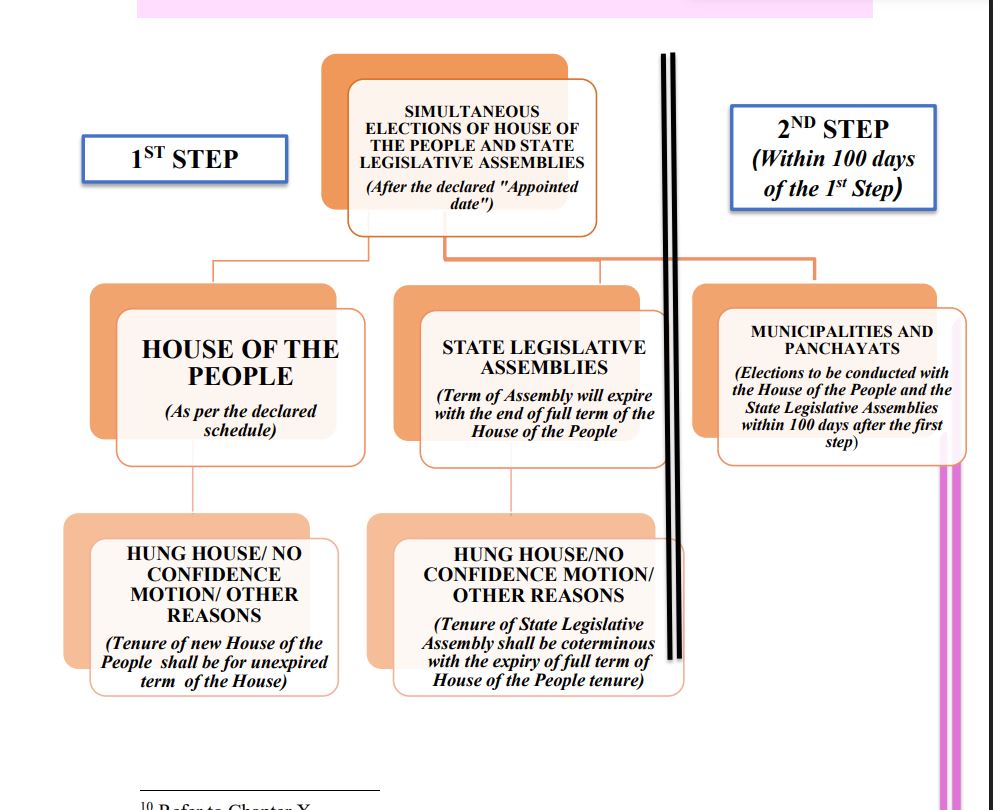
The Indian Express has routinely provided him a platform to push narratives that align with anti-electoral reform sentiments.


A cursory glance at Qureshi’s articles in Indian Express shows a consistent pattern:
- Opposition to One Nation, One Election: He discredits the feasibility of simultaneous elections, citing weak arguments while ignoring the broader benefits of political stability, cost-saving, and governance efficiency.
- Criticism of Electoral Bonds: He portrays the Supreme Court’s recent ruling against electoral bonds as a victory for democracy while conveniently overlooking the fact that transparency in political funding was the primary goal of the scheme.
3. Defense of Rahul Gandhi: Qureshi jumped to question defamation laws after Rahul Gandhi’s disqualification, choosing to undermine the judicial verdict rather than holding politicians accountable for their statements.

This raises the fundamental question: Why does Qureshi always write in favor of positions that weaken electoral reforms and accountability?
Indian Express: From Journalism to Narrative Engineering
Indian Express has not only platformed Qureshi but has also been actively involved in manipulating facts to shape public perception. The USAID funding controversy is a clear example—instead of investigating the claim, they rushed to dismiss it. Why such urgency? Why not wait for a formal probe?
This behavior mirrors past patterns where the mainstream media, instead of upholding journalistic integrity, works as a shield for vested interests. The preemptive whitewashing of the USAID issue suggests that a segment of the media is deeply entrenched in ensuring that uncomfortable truths remain buried.
The Role of Darbari Journalists in Obfuscating Facts
Not just Indian Express, but journalists like Ajit Anjum and others have made it their mission to control the discourse. Instead of asking critical questions about foreign interference in India’s electoral process, they are more focused on targeting the government and painting electoral reforms as a threat to democracy.
This is not journalism; this is agenda-driven propaganda. The moment an issue emerges that could expose foreign funding influencing Indian elections, the media elite swiftly changes the goalpost, diverting attention towards irrelevant arguments.

The Need for a Thorough Investigation
The USAID funding controversy deserves a transparent and independent investigation. But the way Indian Express and select journalists are rushing to cover up the issue even before a probe raises serious suspicions. Instead of serving as watchdogs of democracy, they are behaving like gatekeepers of an established political order.
It is imperative that the Indian public recognizes this pattern of preemptive narrative setting, where the media and their chosen “experts” work overtime to manufacture consent and protect their political masters. The true test of democracy is not just free elections but also a free and unbiased press—something that is becoming increasingly rare in India’s media landscape today.
Author: Rishi Kalia is a seasoned entrepreneur, Digital media Strategist and political analyst with 23 years of diverse experience in business and public discourse. Tweets at Rishi Kalia

